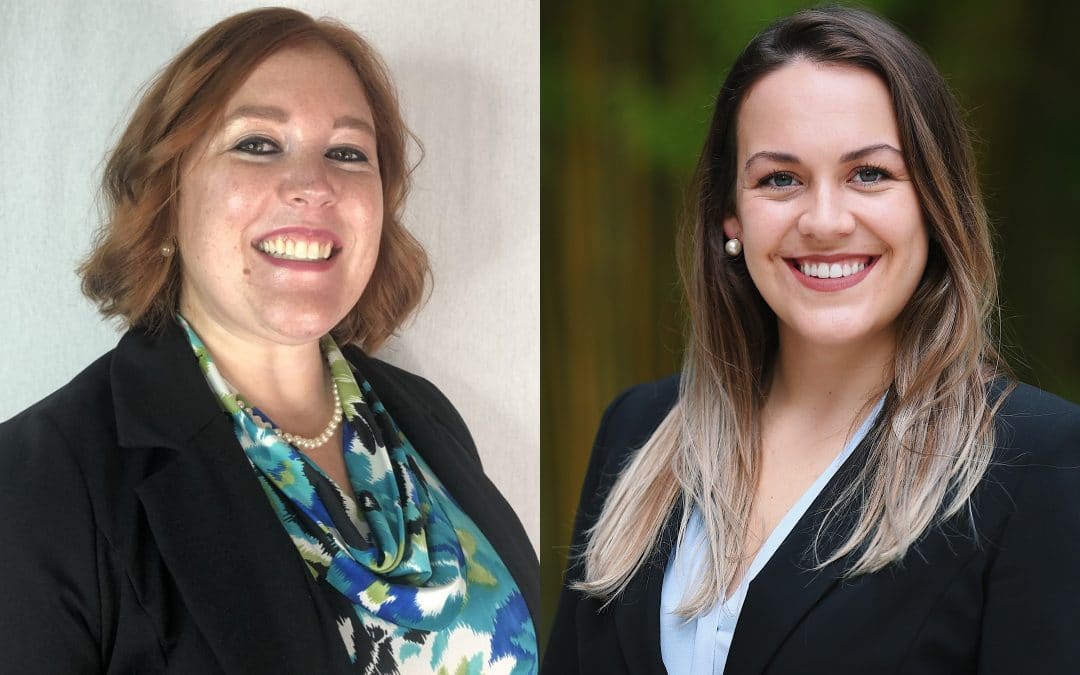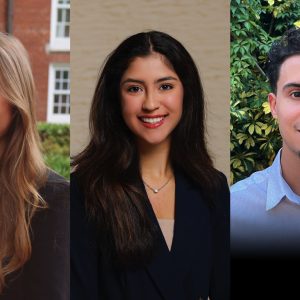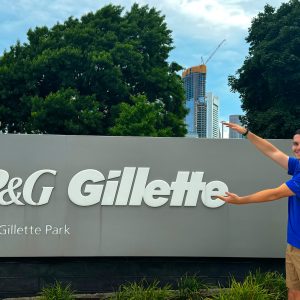UF MBA students hone consulting skills, aid real Latin American businesses despite pandemic
While the effects of the COVID-19 pandemic have halted international travel, it didn’t stop UF MBA students from “Zooming” across oceans and continents to help real businesses in Latin America with their challenges.
As part of the Global Business Consulting class led by Andy Naranjo, John B. Hall Professor and Chair of the Eugene F. Brigham Finance, Insurance and Real Estate Department, UF MBA students worked in teams of five with local businesses in Perú and Panamá, providing them with feedback and recommendations on how to achieve their individual goals across eight weeks.
While working with their companies, students also received additional background preparation and experiences including an economic overview of Perú and Panamá from both Perú’s Central Bank Advisor Magali Silva and Founding Partner at consulting firm Eleménte and Panamá’s former Vice Minister of Economy Domingo Latorraca.
“These local, high-caliber professional speakers are important to further enhancing and contextualizing each team’s understanding of their firm’s broader operating environment,” Naranjo said. “The firms were highly impressed with the tangible content, insights, and professional quality of each team’s consulting deliverables. I too was impressed with the impactful deliverables as well as the deep team camaraderie. I look forward to doing this course again during the spring term with firm consulting projects in Spain.”
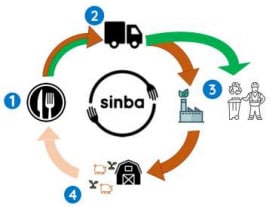
Sinba’s circular recycling model.
Shelby Scoggins (MBA ’21) and her team worked with Sinba, a waste-management service that recycles inorganics and plastics located in Perú’s capital, Lima. Scoggins explained that Sinba, coming from the Spanish “sin basura,” meaning “without waste,” is also trying to build a circular economy for food in Lima. The company currently operates with a network of restaurant partners and is expanding their recycling services to consumers.
“Sinba is changing the way we think about waste, and I believe strongly that this should be the future of all urban societies,” Scoggins said. “What was most fascinating to learn is how their business model works. They collect organic waste from restaurants, process it a their biofactory, turn it into animal feed to sell to pig farmers, who then sell the meat back to the restaurants that produced the waste to begin with.”
Scoggins’ team was asked to help Sinba devise an e-commerce strategy for their team to transition from a business-to-business (B2B) model to a business-to-consumer (B2C) model. Specifically, Scoggins and her team analyzed Sinba’s current market and segments for potential new opportunities in order to develop a product strategy and consumer journey map.
Ultimately, the team recommended that Sinba reach new consumers and retain current customers through a publicity and media strategy and by developing an education and incentive strategy.
Overall, Scoggins found the opportunity, while virtual, to be an excellent experience in learning about consulting.
“We were working directly with the CEO of Sinba to come up with actionable recommendations and a set of strategic priorities, which was great practice for applying everything we are currently learning in business school,” she said. “It was cool to be able to apply the frameworks and theories about strategy and marketing I am learning in class to a real business case. Our company was extremely impressed and appreciative for the work we put into this project, so to be able to make a positive impact on a small startup with a fantastic mission was quite rewarding.”
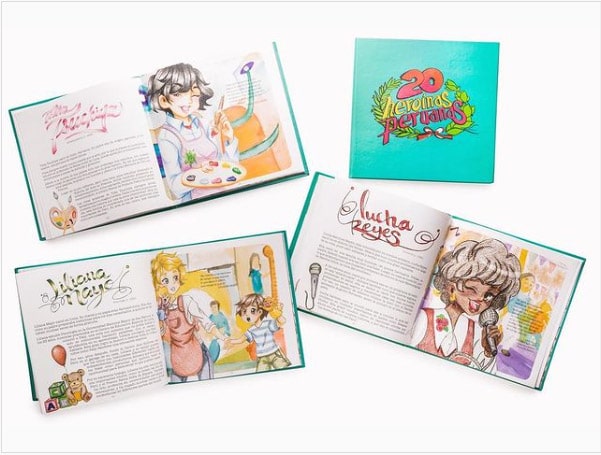
Heroínas Peruanas books.
Tatiana Romanko (MBA ’20) also found working with her Lima-based company, Heroínas Peruanas, to be a rewarding experience.
“The founders, Ximena and Eliana, were so willing to work with us,” Romanko said. “It was truly a humbling experience, and one I will cherish and consider one of my favorite parts of this pandemic.”
Romanko’s team was asked to help Heroínas Peruanas, meaning Peruvian Heroines, a non-profit that focuses on spreading literature and educational activities to promote gender equality based on a buy-one, give-one business model, with expanding their outreach and marketing to a larger target market. While Heroínas Peruanas is currently already working with UNESCO and Perú’s Department of Education to provide educational programs for students and families in all regions of the country, they are hoping to expand to the United States.
“We ended up helping them with a long list of new groups and contacts in the United States to work with, including drop shippers and educational organizations,” Romanko said. “[Also,] we gave them feedback and advice on their 2021 business plan and the formulation of their board of directors.”
In addition to the pride she felt in helping the non-profit grow from the ground floor, Romanko noted she learned more than just business principles from the experience.
“The best takeaway I had was seeing the passion and the risks that entrepreneurs are willing to take for their mission and applying that to my own values and missions,” she said.


